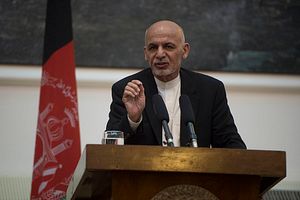As envisioned in his election manifesto and soon after being elevated as the new president of Afghanistan, Ashraf Ghani issued a legislative decree to reform public procurement of Afghanistan. The reform was initiated by merging the existing procurement entities and establishing a central regulatory body, the National Procurement Authority. It came at a time when the prolonged and disputed presidential election caused massive delays to the procurement process of development projects.
For a newly formed entity it was challenging to both establish itself and operate at the same time. Clearing the massive backlog of procurement, responding to the demands of both the procurement entities and the donors in terms of proceeding with the procurement of new projects, and dealing with the urgent need of security sector’s fuel and food contracts can be enumerated as major challenges.
What has changed?
This institutional reform was not warmly welcomed initially by many including politicians, legislatures, bureaucrats, and donors. It was considered to be centralization of authority by the Office of the President. While comparing the pre and post reform organizational structure, centralization of authority is less apparent. A special procurement commission to approve above threshold contracts, Afghanistan Reconstruction and Development Services (ARDS) to facilitate procurement processes, and Procurement Policy Unit to formulate and provide policy guidance were functioning previously in the public procurement sector of Afghanistan.
The functions of the National Procurement Authority (NPA) are adequately similar to the former structure in terms of authority distribution, hierarchical arrangement, and contracts award authority. The reform principally addressed the key flaws of the former dispersed organizational structure: lack of coordination, duplication of responsibilities, and spread out functions that have not only caused hindrance for the procurement entities but resulted in reduced efficiency and effectiveness of the procurement processes.
What has been achieved?
The political and programmatic success of public procurement reform has been acknowledged both domestically and internationally. Afghanistan’s commitments to the Tokyo Mutual Accountability Framework (TMAF) and renewed commitments at the London Conference on Afghanistan 2014 were greatly concentrated on reforms and as wished-for, this reform has satisfied its aimed onlookers particularly the international community.
NPA’s focus on increasing efficiency, effectiveness and value for money by meritocratic appointments and the introduction of transparent and accountable systems have played an important role in achieving its intended objectives. United States’ Special Inspector General for Afghanistan Reconstruction SIGAR’s recent report to the U.S Congress recognized these steps encouraging in the fight against corruption. Transparency International calls it “one bright spot” in the government’s fight against corruption by saving more than $200 million that might have been lost to corruption.
Afghanistan has also scored well in World Bank’s 2016 benchmarking public procurement in both thematic areas of procurement lifecycle and complaint and reporting mechanisms. Furthermore, Afghanistan’s score in Transparency International’s CPI index has also witnessed a significant improvement in 2016 compare to the earlier four years. The recent agreement on implementing Open Contracting Data Standards (OCDS) will also increase transparency through increased community engagement and citizens’ participation.
Whose benefits are at stake?
Public procurement is politically sensitive because of substantial public money involvement. In Afghanistan, the main causes and practices of corruption varies from administrative corruption, clientelism and patronage, to low pay and bribery. Corrupt parasitic and monopolistic networks within and outside governments are mostly those affected by the anti-corruption reforms. Resistance to this reform can be divided into two broad categories. The first category is street level bureaucrats who demonstrate rigidity not due to personal interest but because of historical inertia and no willingness to change. The second category are those whose personal interests are at stake. These include elite and influential public and private actors both within and outside government.
In Afghanistan, where corruption is systematic and embedded in political and economic systems, sustainable anti-corruption reform is a pre-requisite to sustainable development. Close coordination and regular communication between the procurement entities and the government institutions can play an important role in increasing accessibility and reducing political and bureaucratic blame games.
Moreover, addressing a single element in isolation to other institutional pillars of a national integrity system cannot guarantee success but reforms shall be initiated under a unified reform strategy. The reform strategy needs to consider certain institutional pillars such as the judiciary, the civil service, watchdog agencies, civil society, and others in order to prevent corruption at first place rather than relying on penalties after the event. Countries where corruption is worse, alongside institutional reforms, social empowerment is equally important and can play a critical role in the fight against corruption. Engaging civil society and providing public access to documents can also add value to the reform initiatives and assist the state in gaining trust and increasing legitimacy in the eyes of its people.
Ghani’s efforts of fight against corruption are paying off in terms of regaining the trust of international community by demonstrating strong political will to root out corruption from Afghanistan and to increase effectiveness of the foreign aids. However, continuous support of the international community is essential in order to sustain these reforms.
Mohammad Adil Zahed is a Chevening scholar and studies MPA in International Development at the University of York and tweets at @adilzahed
































